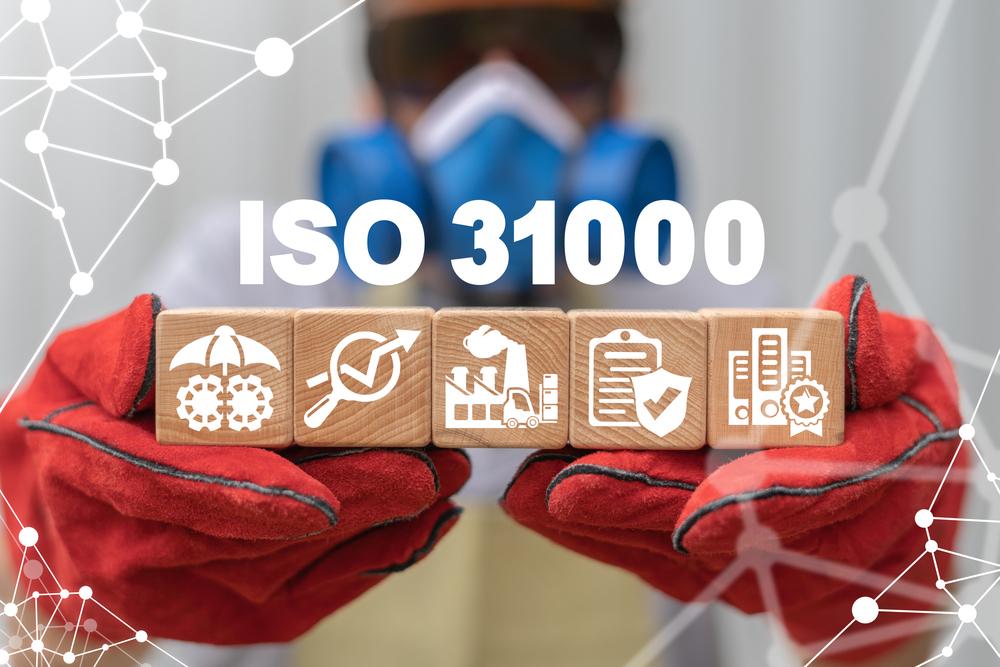Notifications

10 minutes, 11 seconds
-207 Views 0 Comments 0 Likes 0 Reviews

Risk management is a critical aspect of any organization’s strategy, particularly when it comes to ensuring health, safety, and environmental sustainability in the workplace. The International Association of Certified Professionals (IACP) has long been a leader in providing robust certifications in health and safety management, and its ISO 31000 Risk Management Certification is no exception. This certification equips professionals with the knowledge and skills to effectively identify, assess, and manage risks in a wide range of industries.
The IACP is renowned for offering certification programs that uphold the highest standards of quality, and the ISO 31000 Risk Management certification is designed to support these values. As an organization dedicated to promoting best practices and a proactive approach to risk, the International Association of Certified Professionals has developed this certification to help professionals foster a safe working environment, manage uncertainties, and enhance organizational resilience.
ISO 31000 is an international standard for risk management that provides guidelines for establishing a risk management framework and process within an organization. The aim is to identify potential risks, assess their impact, and implement strategies to mitigate or manage them effectively. ISO 31000 can be applied across various industries and sectors, ensuring that businesses can proactively address risks in a way that minimizes harm and supports growth.
The key principles of ISO 31000 include:
Integration: Risk management should be embedded in all aspects of the organization.
Structured and Comprehensive: Risk management should follow a structured, systematic approach to ensure thorough consideration of all potential risks.
Continuous Process: Risk management should be ongoing, with continuous monitoring, evaluation, and improvement.
Customization: The process should be adapted to the organization’s internal and external context.
By adhering to these principles, organizations can manage risks more effectively and create a safer, more secure environment for their employees.
ISO 31000 is crucial for health and safety because it helps organizations anticipate potential hazards, minimize risks to employee health, and comply with safety regulations. The IACP recognizes that health and safety professionals require specialized knowledge to assess risks within their workplace and develop comprehensive risk management plans. Through its ISO 31000 Risk Management certification, IACP prepares professionals to evaluate, prioritize, and mitigate risks, ensuring that employees are protected and the workplace remains compliant with safety standards.
The IACP ISO 31000 Risk Management Certification is a comprehensive training program designed to equip individuals with the skills and expertise needed to implement and manage risk management strategies effectively. The certification covers a range of topics, including:
The ISO 31000 standard and its core principles.
Understanding the context of risk and its impact on health, safety, and environmental factors.
Risk assessment processes and risk identification techniques.
The development of strategies to mitigate, control, and monitor risks.
Techniques for evaluating the effectiveness of risk management strategies.
Continuous improvement of risk management frameworks.
The course also emphasizes the integration of risk management strategies with broader organizational goals to ensure a holistic approach to risk.
Earning the IACP ISO 31000 Risk Management Certification offers a host of benefits for professionals and organizations. Key advantages include:
Enhanced Risk Management Expertise: Certified professionals gain in-depth knowledge of ISO 31000 and its practical application in risk management.
Improved Safety Compliance: By understanding risk management frameworks, professionals can ensure that their organization remains compliant with health and safety regulations.
Career Advancement: The certification is highly valued in the industry, increasing employability and career prospects for certified professionals.
Stronger Organizational Resilience: Organizations benefit from improved risk management processes, leading to a more resilient business model that can adapt to changing conditions.
Global Recognition: The IACP certification is globally recognized, providing professionals with credentials that are respected worldwide.
The first step in obtaining the IACP ISO 31000 Risk Management Certification is to enroll in the course. There are no strict prerequisites for the certification, though having a background in health, safety, or environmental management may be helpful. The course is open to professionals across industries, and it is accessible to those looking to build expertise in risk management.
The IACP ISO 31000 Risk Management Certification is delivered through an online training platform. The course is structured to accommodate the diverse needs of busy professionals. It includes:
Module-based learning: Interactive modules that cover key aspects of ISO 31000 risk management, including theory and practical applications.
Case studies and real-world examples: Practical examples help learners understand how to apply risk management principles in real-world scenarios.
Assessments: Throughout the course, learners are tested on their understanding through quizzes and assignments, helping reinforce knowledge and assess progress.
Course duration: The course typically takes a few weeks to complete, depending on the learner’s pace.
Upon successful completion of the course, candidates will receive their certification, signifying their competency in ISO 31000 risk management.
The International Association of Certified Professionals provides ongoing support to certified professionals. Graduates of the ISO 31000 Risk Management Certification have access to a variety of resources, including:
Networking opportunities with other certified professionals.
Updates on industry trends and best practices.
Continued learning opportunities to ensure skills remain relevant and up-to-date.
IACP’s commitment to professional development does not end with certification. They provide tools, resources, and support to help professionals stay current and continue to grow in their field.
The IACP ISO 31000 Risk Management Certification has a significant impact on the safety culture within organizations. Certified professionals bring with them a thorough understanding of risk management principles that help organizations proactively address health and safety concerns. By implementing comprehensive risk management strategies, organizations can reduce workplace accidents and improve employee wellbeing.
Compliance with health and safety regulations is critical for every business. The IACP ISO 31000 Risk Management Certification ensures that professionals are well-equipped to help their organizations meet legal and regulatory obligations. By understanding the intricacies of risk management frameworks, professionals can design policies and procedures that comply with the latest safety regulations, mitigating the risk of legal penalties.
Organizations that invest in ISO 31000-certified professionals gain a competitive edge in the marketplace. The expertise provided by certified risk managers helps organizations run more efficiently, reduce costs associated with workplace incidents, and maintain a robust reputation for safety and sustainability.
The IACP ISO 31000 Risk Management Certification is an essential qualification for professionals seeking to enhance their skills in managing workplace risks. This comprehensive certification covers all aspects of risk management, ensuring that professionals are well-prepared to address the challenges of health, safety, and environmental management. With IACP’s commitment to excellence, professionals gain the expertise needed to contribute to safer, more resilient organizations.
By offering the ISO 31000 Risk Management Certification, the International Association of Certified Professionals empowers professionals to elevate safety standards, comply with regulations, and make a tangible impact on their organization’s success. Whether you are an individual looking to advance your career or an organization seeking to improve its risk management practices, IACP offers the tools, resources, and support needed to achieve long-term success.

